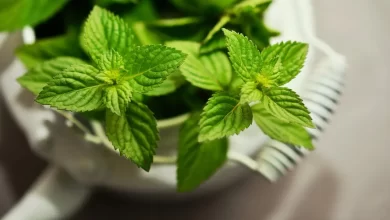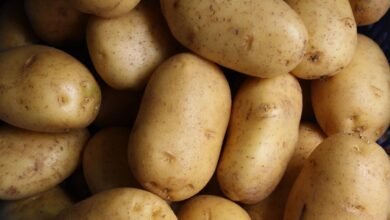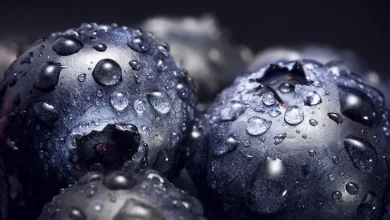Black pepper, scientifically known as Piper nigrum, is one of the most widely used and popular spices in the world. Native to the Malabar Coast of India, black pepper is harvested from the unripe berries of the pepper plant. Its pungent and slightly spicy flavor adds depth and warmth to a wide range of dishes, making it a staple in various cuisines globally. In addition to its culinary uses, black pepper has been valued for its medicinal properties for centuries. It contains a compound called piperine, which is believed to have antioxidant and anti-inflammatory effects. Black pepper’s versatility, distinctive taste, and potential health benefits have made it a fundamental ingredient in countless recipes and an essential part of culinary traditions worldwide.
- Black pepper comes from the fruit of the flowering vine known as Piper nigrum, which is native to South India.
- Black pepper is just one of the varieties of pepper; others include white pepper, green pepper, and red pepper (also known as pink pepper). Each type is harvested at different stages of ripeness and processed differently.
- Black pepper has a long history of medicinal use in traditional medicine systems such as Ayurveda and traditional Chinese medicine. It was used to treat various ailments, aid digestion, and promote overall well-being.
- The compound responsible for the pungent taste of black pepper is called piperine. It is also responsible for many of the spice’s health benefits.
- Black pepper contains a significant amount of antioxidants, which help neutralize free radicals in the body and protect cells from damage.
- Black pepper is a good source of essential nutrients such as manganese, vitamin K, and iron.
- Piperine in black pepper stimulates the secretion of digestive enzymes, helping improve digestion and nutrient absorption.
- Piperine has been shown to enhance the bioavailability of certain nutrients, such as curcumin from turmeric, when consumed together.
- Black pepper is a common seasoning in a wide variety of dishes, including soups, sauces, marinades, meats, vegetables, and salads.
- Black pepper was once considered a precious commodity and was even used as a form of currency in ancient trade routes. It played a significant role in spice trade between Europe and Asia.
- During the Middle Ages, black pepper was so valuable that it was often used as a luxury item and a symbol of wealth and prosperity.
- The cultivation of black pepper requires a tropical climate with adequate rainfall and well-drained soil.
- Black pepper is harvested when the fruits are still green and unripe. The peppercorns are then dried, which causes them to darken and develop their characteristic wrinkled appearance.
- The aroma of black pepper is primarily due to the volatile oils present in the peppercorns.
- Black pepper pairs well with many other spices, including cumin, coriander, cinnamon, and cloves.
- Black pepper is used extensively in cuisines from various parts of the world, including Indian, Thai, Italian, and Mediterranean dishes.
- In ancient times, black pepper was used as a preservative to help prevent food spoilage before the advent of refrigeration.
- Besides culinary uses, black pepper oil is also used in aromatherapy for its stimulating and invigorating properties.
- Black pepper’s spiciness is measured on the Scoville scale. It typically ranges from 30,000 to 50,000 Scoville heat units (SHU), depending on its variety and maturity.
- Black pepper oil is extracted from the peppercorns and is used in various applications, such as aromatherapy, massage, and skincare products.
- Piperine in black pepper exhibits antimicrobial properties that may help inhibit the growth of certain bacteria.
- Historians believe that black pepper was used as a flavoring agent in ancient Egypt over 4,000 years ago.
- In Ayurveda, black pepper is considered one of the three primary spices, along with ginger and long pepper, used to balance the body’s doshas and promote well-being.
- In some cultures, black pepper mixed with salt and water is used as a traditional remedy to alleviate toothaches.
- Black pepper’s antimicrobial properties have historically been employed to preserve meats and prevent spoilage.
- Black pepper is often referred to as the “King of Spices” due to its widespread popularity and extensive use in culinary traditions worldwide.
- Black pepper was one of the spices that European explorers sought to find during the Age of Exploration, leading to the discovery of new trade routes and the establishment of colonial empires.
- At certain points in history, the value of black pepper was so high that it was used as collateral for loans and even as a form of dowry.
- The Roman Empire’s desire for black pepper played a significant role in the expansion of trade and the establishment of trade routes across the Indian Ocean.
- In ancient Rome, the wealthy used to carry small containers of black pepper to showcase their social status.
- In traditional Chinese medicine, black pepper is believed to have warming properties and is used in dishes to counterbalance the cooling effects of other ingredients.
- The piperine in black pepper is known to irritate the nasal passages, leading to sneezing if inhaled in large quantities.
- Black pepper has been used in some cultures as a component of purification and protection rituals.
- Some sources suggest that black pepper may act as a natural insect repellent due to its pungent aroma.
- Black pepper has been used symbolically in various cultures to represent prosperity, abundance, and blessings.
Nutrition Facts of Black Pepper
Here are the nutrition facts about for 2.3 grams (g) of Black Pepper.
- Energy (calories): 5.77
- Protein, grams (g):0.239
- Carbohydrates (g):1.1
- Fat: 0.49 grams
- Carbohydrate: 1.47 g
- Fiber (g): 0.582
- Sugars(g): 0.015
- Calcium: 10.2(mg)
- Iron: 0.223
- Magnesium (mg): 3.93
- Phosphorus (mg): 3.63
- Potassium (mg): 30.6
- Sodium (mg):0.46
- Zinc (mg): 0.027
- Manganese (mg): 0.294
- Selenium (mcg): 0.113
- Fluoride (mcg): 0.787
- Niacin (mg): 0.026
- Folate (mcg): 0.391
- Betaine (mg): 7.13
- Lutein + zeaxanthin (mcg): 10.4
- Vitamin E (mg): 0.024
- Vitamin K (mcg): 3.77
- Vitamin A : 12.6
References
- Wikipedia-Black Pepper
- Britannica.com
- healthline.com
- Medicalnewstoday.com(Nutrition Values)





